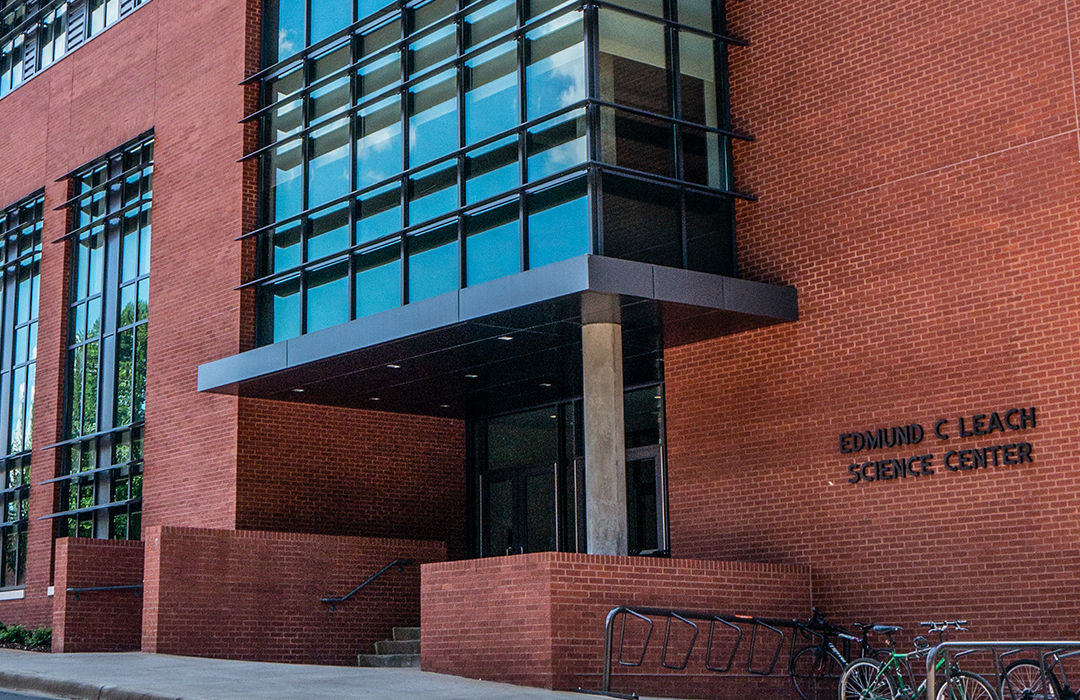
The Leach Science Center is the home of the Department of Physics
Department of Physics
The Auburn Physics is a department of the College of Sciences and Mathematics (COSAM) at Auburn University. Our faculty and curriculum provide a proven path for students to pursue rewarding careers in Physics. The new 84,000-square-foot addition to Auburn University’s Leach Science Center opened its doors in 2019, and also included the renovation of 25,000-square-feet existing space.